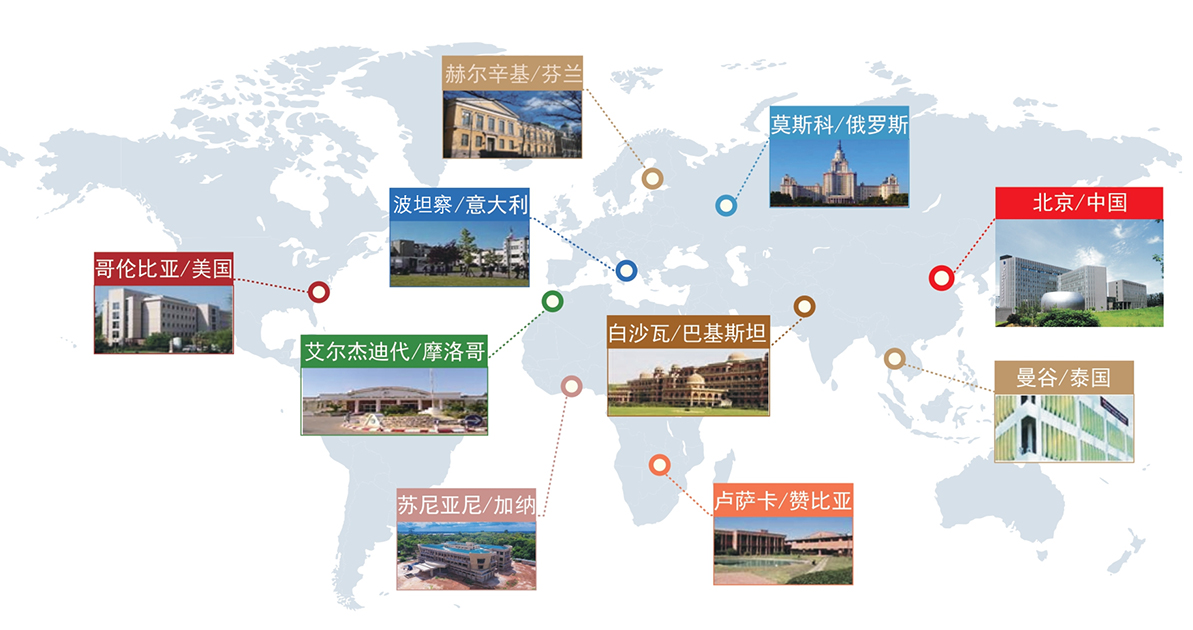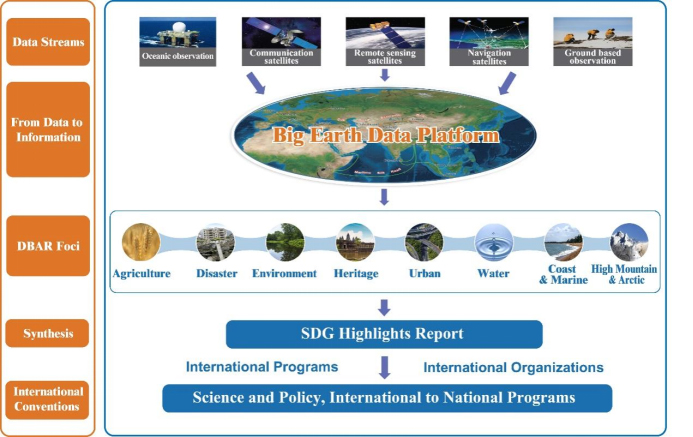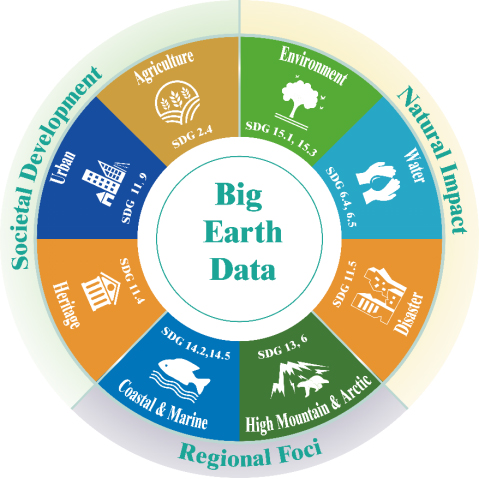About DBAR
The Digital Belt and Road Science Program (DBAR)
The “Digital Belt and Road Program” (DBAR) was initiated by Chinese scientists in May 2016 with the aim to promote the application of digital technology, with a particular focus on Big Earth Data, towards achieving Sustainable Development Goals (SDGs) in the Belt and Road Countries by promoting and enabling sharing of data, technology and knowledge, to facilitate decision-making process in service of the United Nations 2030 Sustainable Development Agenda and the implementation of Global Development Initiative.
DBAR is widely recognized and supported by participating countries and international organizations of the Belt and Road Initiative. It has support of 59 countries, international organizations and global initiatives within its network. DBAR is constituted of the Scientific Committee, under the leadership of DBAR Chair, works as the decision-making body within the Program, supported by 9 professional Working Groups (WG) to carry out research and 9 International Centers of Excellence (ICoE) providing international networking and opportunities for research collaboration. The DBAR Secretariat is hosted at the International Research Center of Big Data for Sustainable Development Goals (CBAS).

Distribution of DBAR ICoEs Worldwide
Through the collaborative efforts of over 300 experts from 26 countries and more than 10 international organizations, formulating the DBAR Science Plan, designed a workflow that allows synergistic exploitation of multiple data streams by developing an integrated data processing and analysis system to extract efective information from the data systems. DBAR encompasses five key actions - linking multiple data streams into an integrated, distributed data repository; designing an ICT infrastructure to support remote discovery, access, processing analysis of EO data in a virtual (cloud-based) environment; conducting research on Earth System Science primarily based on EO data; fostering interaction within communities of scientific and professional stakeholders; and disseminating case studies and outcomes relevant to the Sustainable Development Goals (SDGs).

DBAR Work Flow
The DBAR Foci are centered on Big Earth Data and interconnected through broad theoretical concepts. The foci cover areas where the efects of climate change are more pronounced, including two key comprehensive regions, coastal and marine environments and high-mountain and Arctic environments. The areas of interest also encompass disasters, water resources, urban activity, infrastructure, heritage, and agriculture.

DBAR Foci: from Big Earth Data to SDGs
In February 2018, the Chair of the DBAR Science Committee, Prof. Huadong Guo, published acommentary titled “Steps to the digital Silk Road” in Nature, highlighting the international scientific community's attention to the Belt and Road Initiative and the role of science and technology in its advancement. In October 2023, the Beijing Declaration on Digital Belt and Road jointly released by DBAR and scholars from 25 countries and regions, has been included in the List of Multilateral Cooperation Deliverables of the Third Belt and Road Forum for International Cooperation as one of the 14 “Deliverables of Non-government Cooperation Platforms”.
Over the years, DBAR has signed memorandums of understanding with over 10 international organizations, including UNEP, ISC, CODATA, and AARSE, to promote the construction of the Digital Silk Road at global and regional levels. DBAR has pioneered the development of the Big Earth Data System, which has been included in China’s white paper titled "The Belt and Road Initiative: A Key Pillar of the Global Community of Shared Future". Additionally, a customized CropWatch Cloud platform for Mozambique with Portuguese version has been designed and developed by DBAR, with its findings officially integrated into the country's agricultural reports. Significant results have also been achieved in the application of Earth data in the discovery of archaeological sites along the Silk Road in Tunisia, which has garnered appreciation from the Tunisian government.
As part of DBAR's efforts, the annual International Digital Belt and Road Conference has been successfully held since 2016 in cities such as Beijing, Hong Kong, Tengchong, and Shenzhen, attracting hundreds of experts, scholars, government officials, and stakeholders from various countries. These conferences facilitate the sharing of data, experiences, technologies, and knowledge, promoting the application of Big Earth Data and digital technologies in the sustainable development of Belt and Road countries.
Through years of development, DBAR has become a vital platform for the global scientific community to promote sustainable development along the Belt and Road, playing an increasingly important role in international collaboration and technological innovation.
Contact:
QIAO Jingran
Tel: 010-82178372
Email: dbar2025@cbas.ac.cn